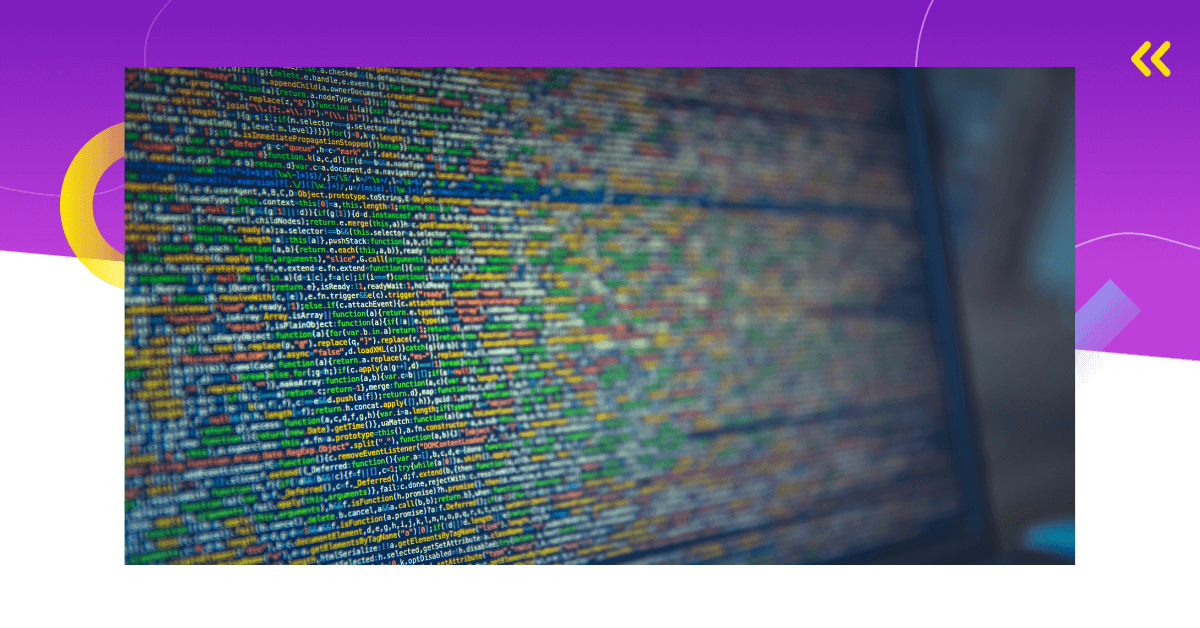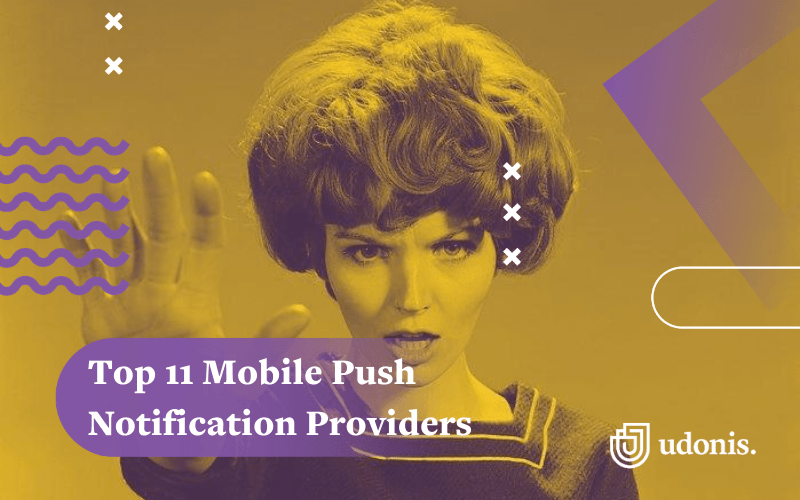GDPR, CCPA, IAB – do these acronyms sound familiar? Most mobile game publishers are well aware of them and take them very seriously. These complex data privacy regulations are based on the same thing – user consent. To simplify this process, most of them rely on consent management tools.
To help you pick one for your mobile game or non-gaming app, we’ve created a best-of list of consent management tools.
Want to know about their features and pricing? We got that covered as well.
Why Game Publishers Need Consent Management Tools
You probably have a general understanding of data privacy and user consent.
The app has to ask users for permission to use their data. At the same time, the advertisers must have access to consent details and inform all the other parties involved.
But did you know this is not a one-time job?
You can set it up today, and it might require updates the very next day.
Data privacy and user compliance is an ever-changing process with constant updates. And keeping up to date with these changes is everything but simple.
There are two major regulations that apply to all publishers: GDPR (General Data Protection Regulation) and the CCPA (California Consumer Privacy Act).
When it comes to mobile games, it��’s extremely important to comply with advertising privacy requirements. The industry standard for this comes from the IAB (Interactive Advertising Bureau) with their TCF (Transparency and Consent Framework). These regulations are based on giving users maximum transparency.
As a mobile game publisher, you need user consent for any kind of player behavior data. This is required for the pillars of successful game monetization – advertising revenue and user analytics.
Besides the above-mentioned general regulations, many countries develop additional regulations of their own. This means you also have to keep track of the ever-changing legislation in all the countries where your game is published.
Not keeping up with these is no joke, as it can result in serious legal and financial consequences.
For this reason, mobile game publishers rely on third-party options. Consent management tools are used to collect and manage player data, all while staying in compliance with up-to-date legislation and regulations.
Consent Management Tools for Mobile Games: Checklist
There is a huge offer of consent management tools out there, so here’s a little checklist of what your app or game needs from one.
Every tool will deliver on the basic feature – delivering a consent notice. However, the way it adapts to your game and audience is what matters.
First of all, it should make user consent clear and simple. This means providing clear information on the data you will collect, what it will be used for, and where it will end up.
The players should also be able to simply refuse giving consent and adapt preferences. For perfect clarity, it is ideal the consent notices are available in the user’s native language. Therefore, if your game is available across the globe, look for a tool that covers as many languages as possible.
Next, it should be managed and constantly updated. That includes keeping up with all legal changes, vendor lists, and all other updates. Moreover, users have to be able to change their consent settings at any time.
Every user consent collected has to be valid and traceable. This includes information on the country, date, time, the details of the consent version, each preference update, etc.
There are a lot of consent management tools out there that offer this service for websites, but not so many that handle apps as well. For this reason, we’ve listed them for you.

1. OneTrust
OneTrust is the most widely used consent management tool in the world. It is used by various companies – 7,500 of them across the world. This includes a lot of mobile-first companies.
One of the reasons for that is its compliance with IAB US and IAB Europe. It supports different privacy policies, from TCF v2.0 to CCPA, GDPR, DAA AdChoices, LGPD, and hundreds of other data privacy and security regulations.
OneTrust helps build data-driven apps that respect user privacy by collecting valid and granular user consent.
Its scanning features track unknown SDKs and help publishers understand their app’s privacy health. App publishers are provided with team visibility with all information on the app’s data sharing.
The tool takes app experience into account. This includes collecting consent during the first app use, adjusting preferences, and only asking for consent when it’s needed.
Key Features
- Mobile consent collection and user experience
- Scanning apps for third-party tracking technologies
- Collecting consent in compliance with global regulations
- Managing preferences
- Syncing across systems
- Central consent and preference database
- Giving users advanced control
Pricing
- Free one month trial
- App scanning and consent for enterprises with under 2,000 employees – $180/month/app
- Mobile app consent for enterprises with over 2,000 employees – $200/month/app

2. Choice
Choice is a consent management tool developed with a collaboration of two companies.
Quantcast, a leader in consent management, and Kochava, a mobile-specific data provider.
Both companies have been working with IAB (Interactive Advertising Bureau) in Europe and the US to get a clear understanding of compliance.
Built for apps and websites, it is based on balancing user privacy requirements and the ad-driven publishing industry.
With Choice, publishers can control, customize, and manage their users’ consent preferences. As an app publisher, you gain control over which 3rd party vendors can ask users for consent on your properties.
This tool meets all privacy requirements a mobile app might need – GDPR, CCPA, ePrivacy, and others.
Key Features
- Supports key privacy regulations
- A centralized portal
- Purpose notifications
- Privacy preferences
- Signal storing and sharing
- Consent metrics that measure user interactions
- Audit log
Pricing
- Free

3. TrustArc
TrustArc is a tool that covers different privacy-related solutions for publishers. Its fully automated platform delivers privacy intelligence and privacy management.
Of course, it provides mobile app consent to address all major regulations, including GDPR and CCPA.
This tool manages consent choices and user’s privacy preferences. Next, it provides a clear insight into possible third party technologies that collect and share user data. Other than that, it evaluates vendor risks by tracking all relevant compliance metrics.
Equally important, it provides alignment with the brand identity. For maximum relevance, it considers the user’s location and delivers consent notices in various languages.
Key Features
- Mobile compliance
- User experience focus
- App scanning for third parties
- Brand customization
- User preferences management
- Geolocation detection
- Supports multiple languages
- Simple integration
Pricing
- On request

4. Iubenda
This tool offers a set of compliance solutions for apps and websites.
When it comes to mobile app compliance, it covers all global and industry-related regulations. This includes GDPR, ePrivacy, IAB, app store policies, etc.
Their products manage privacy and cookie policies, cookie consent, terms and conditions, and other possible in-app requirements.
Iubenda’s consent management tool is developed by an international legal team and is constantly refreshed according to new requirements.
Next, this tool is fully customizable. It matches the app’s style and design, displays a cookie banner and collects consent, sets advertising preferences, etc. All with the goal of staying unobtrusive and relevant to the app’s experience.
Key Features
- Creating privacy and cookie policies
- Cookie solution SDK for mobile
- Terms and conditions document
- Self-updated whenever the law changes
- Optimized for the mobile store specific requirements
- Set-up guidance
- Available in 8 global languages
- User-friendly dashboard
Pricing
- Personal – $29/year
- Business – $9/month

5. Ogury Consent Manager
This consent management tool is developed by Ogury, one of the biggest mobile data companies in the world.
The Ogury Choice Manager is designed for all things mobile – apps, iOS, Android, mobile web, but it also works on desktop.
Once integrated, it handles the collection of user consent for all parties involved. It makes sure your app is compliant with GDPR, CCPA, and all other privacy regulations. Moreover, it ensures consent traceability.
Ogury’s consent notices are clear and explicit. When it comes to in-app advertising, it gives users three options:
- Paying for an ad-free experience with no data sharing
- Opting in for sharing behavioral data and getting personalized ads
- Opting out of sharing behavioral data and getting generic ads
These notices are highly customizable to fit your app’s identity. Finally, one of Ogury’s most important features is intelligent consent optimization. Using AI, the tool focuses on finding the optimal time to reach users with consent notices.
Key Features
- IAB registered, GDPR and CCPA ready
- Minimized user disruption
- Requires no legal resources
- AMP compatibility for mobile web
- Available in 24 languages
- Optimizing configuration
Pricing
- Premium edition is free until 2021, after that pricing is available on request

6. Clarip
Behind this name, there is a motto this tool is based on – Clarity in privacy! This consent management tool works across different websites, mobile apps, and even IoT devices. It relies on machine learning, data science, and text analytics.
Clarip’s task is to make it absolutely clear for users what is their role in the whole process. For this reason, they display a simplified Privacy Policy to the user, and a Hosted Privacy Policy if they are looking for more details.
It allows apps to gain user trust, understand user preferences, manage risks, and comply with GDPR. Clarip’s machine learning is constantly improving the tool, from keeping up with policy changes to dashboard updates.
The dashboard is simple and easy to understand. It also allows you to track multiple properties at once. For example, if you have multiple apps, you can track all of them with a single tool.
Key Features
- Multiple channels
- Unified consent and preference
- Granular preferences
- Real-time audit trail
- Reports
- Easy import and export
- API driven
- Fully branded
- Follows your process flow
- Private cloud architecture
Pricing
- Silver Plan – custom pricing
- Gold Plan – custom pricing
- Enterprise Plan – custom pricing

7. Usercentrics
This German-based consent management provider helps native apps simply integrate user consent features.
Usercentrics’ consent management tool legally collects user consent and creates a transparent user experience. It supports all major legal frameworks including GDPR, CCPA, and TCF 2.0.
Their consent philosophy is based on this approach: “Ask nicely, and users will appreciate it”.
To do this for an app, the tool provides two options:
- a predefined UI
- a fully customized in-app SDK with an own UI
The tool also optimizes the efficiency of consent notices with A/B testing features.
Furthermore, when it comes to data management, users are given the option to come back to Usercentrics Privacy Settings to review or change their preferences.
Equally important, the consent policies are instantly updated and cover legal information on over 1,000 vendors.
Key Features
- Seamless integration
- Collects consents in accordance with the law
- No loss of data and advertising restrictions
- Increasing opt-in rates
- Error handling
- Device language detection
- Development documentation
Pricing
- Standard Package – 8€/month
- Business Package – 39 €/month
- Enterprise Package – custom

8. Tamoco
Tamoco is a mobile-first consent management tool. It is specialized in user privacy, opt-in and data transparency. Or as they say – don’t let privacy laws mean the end for your app.
When it comes to collecting consent, Tamoco’s privacy toolkit helps app publishers get user consent with the right notice at the right moment. This dialogue is fully customizable – ensuring its compliance with app design and experience.
Integrating Tamoco’s API enables opt-in, permission modifications, and consent status check.
The platform syncs user consent data across devices, ensuring user preferences are stored and well-managed.
Moreover, they save every user interaction for audit purposes. Their privacy SDK keeps user data secure and encrypted.
Naturally, some users will opt-out. If that happens in any location, it will be synced across the whole infrastructure.
Key Features
- GDPR and CCPA compliant
- Customizable consent notices
- Keeps user data private
- Secure audit trail cross-device sync
Pricing
- On request

9. CookiePro
Developed by one of the world’s consent management leaders, OneTrust, CookiePro simplifies cookie compliance for mobile apps.
It leverages CCPA and GDPR regulations, implementing privacy in mobile apps by design.
As the first step in the process, CookiePro provides an app scan that detects third-party tracking technologies. The scan identifies the app’s privacy permissions, frameworks, and SDKs.
For a better understanding of the app’s privacy health, the publisher receives visual reports.
Based on those findings, Cookiepro builds a consent collection approach.
It allows you to pick between multiple template consent options or create a custom one. The users are offered granular preference options that work in favor of building mutual trust.
The tool captures all users that consented, what they consented to, and when it occurred. It syncs user preferences and consent across multiple devices and marketing channels.
Ultimately, all this data is stored in a central historical database.
Key Features
- Scanning apps for tracking technologies
- Identifying third-parties using your data
- Collecting valid and granular user consent
- Giving users preference control
- Maintaining records of compliance consent
Pricing
- Yearly – $180 /month/app (billed annually)
- Monthly – $200 /month/app

10. Consentmanager.net
Behind this self-explanatory name, we have another tool that works both for web, mobile, and in-app purposes.
The platform is easy to integrate and most importantly, GDPR and CCPA compliant. It is also a part of IAB and compatible with all major ad servers.
Its consent notice is fully customizable to the app design, and it allows publishers to test different designs. When this is done, the tool automatically optimizes for the best performing one.
When it comes to the consent notice text, it comes in 30 different languages – for all European countries.
As the tool’s biggest benefit, Consentmanager highlights high acceptance rates and low bounce rates.
Key Features
- Responsive to screen size
- A/B testing and automated optimization
- Cookie crawlers
- Ad blocking until the user gives consent
- Data is saved in European servers only
Pricing
- Basic – Free
- Standard – 50 €/month
- Agency – 200 €/month
- Enterprise – 695 €/month

11. FreeCMP
The philosophy behind this tool is clear – mobile app consent management should be free and simple.
For this reason, they’ve developed exactly that – a basic consent management tool that efficiently complies with GDPR regulations.
It supports both Android and iOS apps and comes with no costs. Since it’s mobile-only, it comes with a deep understanding of the importance of user experience with minimal disruptions.
The consent notices are designed in a way that provides privacy compliance and doesn’t affect UX.
Consent management is an ongoing task, and for this reason, the platform provides user insights and consent rates reporting.
Finally, the users are provided with clear information about how their data is collected and handled.
Key Features
- Mobile-first
- Quick and simple to implement
- Supports multiple languages
- Consent analytics
Pricing
- Free

12. Didomi
This consent management tool allows you to integrate, optimize, and manage user consents.
Besides mobile apps, it also supports websites, smart TVs, and even video games.
Didomi is a part of IAB’s advertising standard TCF 2.0 and is compliant with GDPR and CPPA.
By integrating the tool into your app, you can gather consent whenever you believe it will work best for your app users.
Getting users’ consent means delivering personalized and relevant in-app ads, and nurturing a long-term relationship with your app.
Didomi’s consent notice informs users on cookie and tracker usage and comes with full transparency on data management.
All of this allows you to monetize your app’s audience without compromising their privacy.
Driving opt-in is always a challenge, and Didomi constantly optimizes to provide app publishers with higher opt-in rates. Once you collect user consent, you can provide your advertising vendors with all the needed information.
Key Features
- Building and customizing consent notice
- Compliance with all relevant privacy regulations
- Flexible consent purposes configuration
- Custom Preference center
- Reporting and analytics
- Responsive design
- Supports 29 languages
Pricing
- From 250 €/month (volume-based)

13. AppConsent
AppConsent is a another great example of consent management tools that helps apps and websites with user consent collection.
It comes in two versions – a free AppConsent Xchange and AppConsent Premium. Since the premium version covers all the tool’s features, let’s go over them.
With this tool, the consent notices can be simply set and customized – including buttons, banners, slots, the number of steps, etc. This allows you to provide an experience that matches your app design best.
While staying compliant with privacy regulations, the AppConsent tool constantly tests and optimizes performance for achieving the best conversion rates possible.
It also captures every evidence of consent with their Chainsaw, their private Blockchain.
AppConsent’s reporting and analytics are available in real-time, via a simple dashboard.
Finally, the free version allows you to benefit from the same features, with one key difference. You give AppConsent consent to collect the organic data, which is later tagged and streamed to data-marketing companies.
Key Features
- Simple CMP setup
- Optimized consent rates
- Cross-device and cross-platform consent
- Proof of consent and compliance
- Reporting and analytics
- Available in 8 languages
Pricing
- 2 million monthly active users – 350 €
- 3 million monthly active users – 450 €
- 4 million monthly active users – 550 €
- 5 million monthly active users – 650 €

14. Osano
Osano is a consent management platform that guarantees users management of their privacy programs, without worrying about noncompliance.
Since this platform guarantees users absolutely no fines and penalties, if a user receives a platform-related fine related to any data protection breaches, Osano promises to pay the fine. But, the fine-payment option only applies to certain plans.
Moreover, Osano uses AI for data discovery, where you can simply and quickly find user data. Along with the AI data discovery, this CMP keeps your privacy laws updated at all times by monitoring any new changes that could happen.
Also, the control panel is quite simple, with a UI that makes it easy for everyone to use.
When it comes to the pricing, Osano offers a 30-day free trial for the paid version, but, they also offer a free, developer version. However, the free version is somewhat limited, where you can only have one user and one domain, with 5,000 monthly visitors.
Key Features
- Free version available
- Simple setup and control panel
- Constant privacy laws updates
- Vendor and privacy lawsuit alerts
- Consultation with privacy experts available online
- Available in 42 languages
Pricing
- Developer – Free
- Business – $99.99 monthly
- Business+ – $199.99 monthly
- Enterprise – custom, starts at $549 per month
Consent Management Tools Wrap Up
Ensuring data privacy for app users is something that simply has to be done.
However, this process can often be time-consuming and complicated.
This is where consent management tools come to the rescue. A well-chosen partner does everything that your mobile game needs in order to comply with data privacy regulations.
This includes collecting user consent, tracing, and managing it. Making a small mistake in the process can be costly, so make sure to choose your partner wisely.
Finally, it’s not only about avoiding fines, but also about building a trusting relationship with your players.



![Top 11 Mobile Intelligence Providers [Pricing Included]](/static/0e4f14bdef6ce961ec3302e21c4bf275/0ccb9/mobile-inteligence-providers.png)



Comments